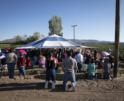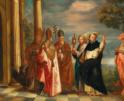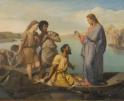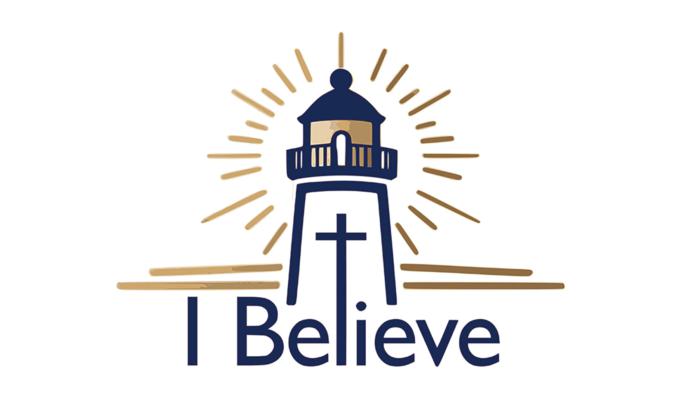
Faith
I have faith that, even in our polarized times, people of good will keep an open mind and will not fear honest exchange.
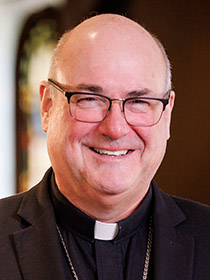
Henning
Our society finds itself deeply divided on the question of immigration. Almost daily, the media stories and commentaries reveal an environment where it has become difficult to engage in honest debate let alone conversation. Political leaders frequently exploit the divisions and thereby contribute to them. While partisan divides are not limited to the topic of immigration, they have become particularly bitter and polemical on this issue.
While acknowledging that the conversation is difficult, it is also necessary. The questions surrounding the migration of persons from one country to another treat of profound matters such as justice, human dignity, and the importance of compassion. Of course, the debates in the United States are set against a worldwide context of migration, conflict, and controversy. Pope Francis has spoken frequently of the dignity and rights of migrants in that worldwide context. And he has challenged each country to examine its own actions and/or lack of action.
In this column, I would like to comment on aspects of Catholic moral teaching. Next week, I will discuss the actions and ministries of the Archdiocese of Boston. It is important for you to understand what we do, how we do it, and why we do it. I am well aware that delving into this topic may anger or offend. Nonetheless, I am compelled by my conscience to speak. I have faith that, even in our polarized times, people of good will keep an open mind and will not fear honest exchange.
Some may feel that as a bishop, I should limit my opinions to matters of faith and avoid an obviously political and divisive topic. But here lies the heart of the matter: this political matter intersects with the basic moral principles. I wish to speak about those principles, knowing that we might disagree on how those principles may be concretely realized.
The Catholic Church has a centuries-long tradition of caring for the needs of migrants and working through the morality of migration and proper civil governance. And at this very moment, Catholic communities and institutions are working with and for migrants all around the globe. These ancient and modern experiences help to discern the demands and the meaning of this moment in 21st-century America.
And as an American, I feel pride in a nation that has offered refuge to so many from such a marvelous diversity of places and cultures. It is true that our legacy also includes struggle, injustice, hatred, and even slavery -- but it is also true that the best of America is so often expressed in the struggle against such sins and for the dignity of all -- "created equal" and "endowed by their creator with certain inalienable rights."
Drawing on Catholic faith and American heritage, I wish to comment here on three matters: 1. The right to migrate and the regulation of borders, 2. The call to compassion, and 3. My hope for good leadership.
1.The right to migrate and the regulation of borders:
Would a family fleeing a wildfire be charged with trespassing if they escaped that fire by crossing the property of another? After an earthquake, would anyone question city residents camping in parks and open spaces even if the park rules warned that it closes at dark? Would you turn away a neighbor seeking refuge because a burglar has entered their home? You get the point; now apply it on a larger scale. Catholic teaching holds that human beings who are driven from their homes by natural disaster, violence, oppression, want, or any other reality that threatens life and limb, have a God-given right to seek refuge and assistance, even if that search for refuge carries them across national borders.
This basic moral principle of refuge and assistance in extraordinary circumstances does not preclude the need of a nation to regulate its borders. In fact, Catholic teaching explicitly upholds the obligation of good governance to protect and regulate borders for the sake of the common good. Law-abiding citizens rightly expect that society will provide protection and security.
In our immigration debates, there needs to be an acknowledgement that some immigrants are in fact refugees and that this distinction matters. Regulations that govern ordinary circumstances must have the means to bend for the extraordinary circumstances of those who flee desperate danger. We might disagree on how to concretely realize this principle in policy, but we cannot avoid the moral demand of the refugee.
2.The call to compassion:
In his address to the 105th World Day of Migrants and Refugees, Pope Francis taught that this modern crisis of migration challenges us to recover "essential elements" of our Christianity and our humanity. He called on all of us to recognize that the migrant is not a supplicant but a partner. The migrant offers the opportunity for each of us to be the good neighbor like the Samaritan in Jesus' beautiful parable. In overcoming fear of the "other" and practicing compassion, we find our own truest selves made in the image and likeness of God.
I fear that our partisan debates rob us of this profound awareness of the divine call to practice compassion. It is no accident that the Samaritan is not just a stranger, but alien -- a man from another culture, language, and religion.
Many immigrants feel fear and rejection. They find themselves pawns to the ambitions of the powerful. Where is that American legacy of welcome and opportunity? Where is the compassion for brothers and sisters in desperate circumstances? In this archdiocese, there are thousands of folks from the Caribbean and Central America who reside here with Temporary Protected Status -- legal status granted to people fleeing war and natural disaster. Now, after decades of hard work and having raised children and grandchildren, they face the fear of losing everything.
As I have already indicated, I understand the gravity and the necessity of the immigration debate, but I must remind us that politics and debate do not outweigh the human call to compassion. If we lose that basic sense of empathy with other human beings, we will have become something other than what God intends for us. Consider these words of Pope Francis in that address: "Compassion is a feeling that cannot be explained on a purely rational level. Compassion strikes the most sensitive chords of our humanity, releasing a vibrant urge to 'be a neighbor' to all those whom we see in difficulty."
3. My hope for good leadership:
It is important to acknowledge that this seemingly intractable conflict has a long history. For decades, the American political leadership has failed to address comprehensive immigration reform. My brother bishops and I have seen the tragic effects of our broken system among the people we serve and we have called repeatedly and fruitlessly for bi-partisan and comprehensive immigration reform. The fact is that we have not been regulating our borders for the sake of the common good. We have combined harsh enforcement with an irrational and dysfunctional system. Our society seeks immigrant labor but relegates the workers to a shadow existence as the undocumented who may never hope to reap the benefits of hard work and opportunity. Such suffer the most egregious effects of our failed system. Yes, we need secure borders and proper procedures for entering the country and seeking residency or citizenship. But that effort will be cruel if it does not also recognize the real need of refugees and include reasonable compassionate options for the millions who toil in our midst.
Whichever side you find yourself in these poisoned times, please understand that I do not wish to speak for or against either party. I speak as a Shepherd of Christ in the hope that all will live that lesson of compassion which He wrote for us in His life's blood. And I must appeal to our elected leaders to seek the common good in the exercise of their respective offices. We need good leadership -- for the sake of human dignity, for the sake of compassion, and for the sake of laws that protect and promote the common good.
I continue to hope and pray that compassionate hearts and reasoned debate will prevail. Our actions matter. They shape us, and they shape our future. But it is also true that our best actions flow from who we are. As children of God, we are creatures made by and for love. As Americans, we honor the proud legacy of "E pluribus unum," "Out of many, one." May that faith and that legacy guide us now. God bless you and God bless America.
- Archbishop Richard G. Henning is the Archbishop of Boston
Recent articles in the Faith & Family section
-
Freedom of worship for migrantsBishop Kevin C. Rhoades
-
Praying with saints and sinnersFather Robert M. O'Grady
-
'E pluribus unum'Archbishop Richard G. Henning
-
Making Faithful WitnessesMaureen Crowley Heil
-
Into the deepScott Hahn

